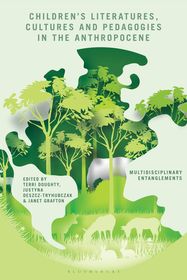
The Ecology of Dress in Shakespeare and His Contemporaries
Sorozatcím: Edinburgh Critical Studies in Renaissance Culture;
-
8% KEDVEZMÉNY?
- A kedvezmény csak az 'Értesítés a kedvenc témákról' hírlevelünk címzettjeinek rendeléseire érvényes.
- Kiadói listaár GBP 100.00
-
47 775 Ft (45 500 Ft + 5% áfa)
Az ár azért becsült, mert a rendelés pillanatában nem lehet pontosan tudni, hogy a beérkezéskor milyen lesz a forint árfolyama az adott termék eredeti devizájához képest. Ha a forint romlana, kissé többet, ha javulna, kissé kevesebbet kell majd fizetnie.
- Kedvezmény(ek) 8% (cc. 3 822 Ft off)
- Kedvezményes ár 43 953 Ft (41 860 Ft + 5% áfa)
Iratkozzon fel most és részesüljön kedvezőbb árainkból!
Feliratkozom
47 775 Ft

Beszerezhetőség
Becsült beszerzési idő: A Prosperónál jelenleg nincsen raktáron, de a kiadónál igen. Beszerzés kb. 3-5 hét..
A Prosperónál jelenleg nincsen raktáron.
Why don't you give exact delivery time?
A beszerzés időigényét az eddigi tapasztalatokra alapozva adjuk meg. Azért becsült, mert a terméket külföldről hozzuk be, így a kiadó kiszolgálásának pillanatnyi gyorsaságától is függ. A megadottnál gyorsabb és lassabb szállítás is elképzelhető, de mindent megteszünk, hogy Ön a lehető leghamarabb jusson hozzá a termékhez.
A termék adatai:
- Kiadó Edinburgh University Press
- Megjelenés dátuma 2024. november 30.
- Kötetek száma Print PDF
- ISBN 9781399522144
- Kötéstípus Keménykötés
- Terjedelem296 oldal
- Méret 234x156 mm
- Nyelv angol
- Illusztrációk 11 black and white illustrations, 5 colour illustrations 616
Kategóriák
Rövid leírás:
Offers an ecocritical approach to understanding dress in early modern plays and performance
TöbbHosszú leírás:
This volume posits that clothing in the early modern period was conceived of as the prime interface between the human body and its multiple environments. Both a second skin and a human-made artefact, dress can indeed be considered as the most immediate site for the elaboration of any sort of ecology, in its etymological sense of a ‘discourse’ of the oikos, or of the place we inhabit. This collection shows how early modern English literature, and drama in particular, interrogates the crucial relationship between humans and the world that surrounds them in its staging of dress. It also argues that the theatrical productions of the time derived much of their creative energy from this process, by which climates and their effects were translated and embodied through dress on the mediating stage. Its various chapters study early modern clothes in their ecosystems and challenge the inside/outside, natural/artificial and body/environment binaries.
TöbbTartalomjegyzék:
List of Figures
Acknowledgements
Series Editors' Preface
Introduction
Sophie Chiari and Anne-Marie Miller-Blaise
Part I. Fashioning Nativeness and Foreignness
1. Without a National Dress but with a Climate of Their Own: The Invention of the English Climate and ‘Constitution’
Margaret Tudeau-Clayton
2. The Clothes of Insularity in Browne’s Inner Temple Masque
Elisabeth Lacombe
Part II. The Humours of Dress
3. Fabrics, Fashion and the Environment: Representing Venice in Early Modern England
Anne Geoffroy
4. ‘Come and see our frippery’: Brainworm’s Humour of Necessity and Clothes Trafficking in Ben Jonson’s Every Man in His Humour
Anna Demoux
Part III. Clothing the Seasons of Life
5. Clad in Rags: Eco-psychology and Trans-textuality in the Lear stories
Danièle Berton-Charrière
6. ‘O that I were a glove upon that hand’: Love and Gloves in Shakespeare
François Laroque
7. Shakespeare’s Gaudy
Dympna Callaghan
Part IV. The Stuff That Gender Is Made Of
8. ‘That quiff and pinner that hath the gillyflower’: Flowers, Clothes and Female Identities in Jane Cavendish and Elizabeth Brackley’s The Concealed Fancies
Lisa Hopkins
9. Fashioning Falstaff: Dress and Disguise in Shakespeare’s Henry the Fourth and The Merry Wives of Windsor
Valentina Finger
10. Middleton’s Ambivalent Fashions
Chantal Schütz
Part V. The Wealth of Nature's Wardrobe: Playing With The Elements
11. Water and Costume: Wetness on the Early Modern Stage
Sophie Chiari
12. ‘Diana’s Shrouds’ and ‘Black Tempests’: Rites of Passage in Christopher Marlowe’s Dido Queen of Carthage
Sélima Lejri
13. Changing Habits: The Politics and Theatricality of Clothing in Early Modern English Voyages
Sophie Lemercier-Goddard
Notes on Contributors
Bibliography
Index













